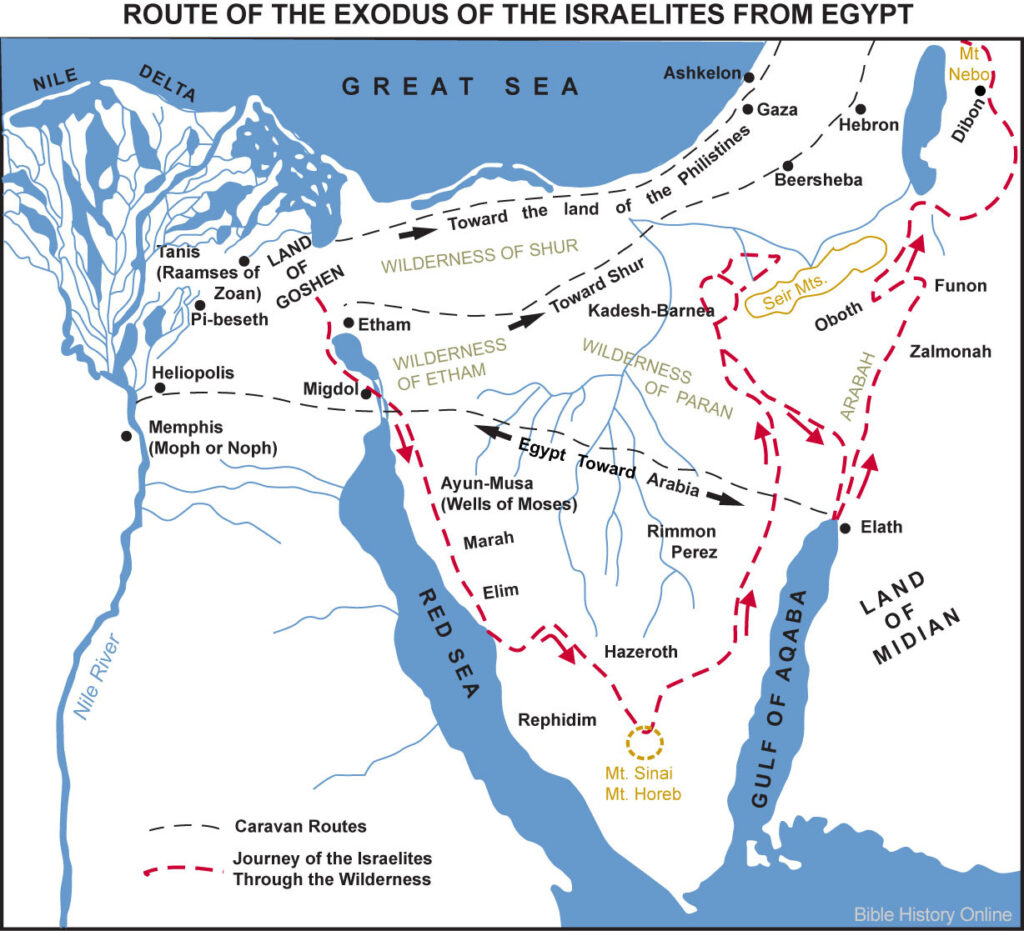11 Days, 250 Miles, Equals 40 Years

“It is eleven days’ journey from Horeb by way of Mount Seir to Kadesh Barnea.” —Deuteronomy 1:2
If you’re familiar with a GPS, you’ll know that when you use it for directions, the system will give you three options once you put your destination in.
The first driving option gives you the fastest route — less time and fewer miles.
The second option will take a little longer and cover more miles.
Then, there’s the third driving option, which will take the most extended amount of time and even more miles.
Your decision on which option to take depends upon the route that each offers.
I think it’s safe to say that most people would opt for the fastest route because nowadays, quicker is better.
However, the children of Israel did not have options. Or did they? To clarify the statement, maybe it should be said that Israel did not have the modern-day technology we have today.
In Deuteronomy 1:2, there was no GPS. There wasn’t even the Law of Straight Lines, which says, “The shortest path between two points is a straight line” — Archimedes of Syracuse. The children of Israel wandered around forty years on a journey that should have only taken them eleven days.
Did they have the choice of a faster route? Or was the extended amount of time and extra mileage their only alternative? Israel was given the latter option because of the choices they had made up till this point.
God was Israel’s GPS. He gave them the pillar of cloud by day and the pillar of fire by night (Exodus 13:21-22). Israel was to follow suit whenever and wherever the fire or cloud moved, much like the voice that gives you turn-by-turn directions from your GPS.
Their faith, obedience, and loyalty to God were the deciding factors as to how long it took them to reach the Promised Land. They could have traveled a straight line if the Nation had displayed unwavering faith, obedience, and allegiance to God. But they did the exact opposite.
God punished the children of Israel for their lack of faith (Numbers 14:1-3), their disobedience, and their worship of false gods at Mount Sinai (Exodus 32:1-6; Deuteronomy 9:12, 16). However, the scenic route was not a complete waste of time. In Israel’s wilderness experience, God used the time to teach the Israelites, through Moses, precisely what was expected of them once they possessed their promised land.
Like with Israel, God has made promises to each of us. How and when we arrive at those promises mostly depends upon our perspective of who He is. Our faith, obedience, and reverence of God play a significant role in acquiring His covenant agreements.
I encourage you today by saying God has not forgotten the words spoken over your life. Just because we don’t see the manifestations now doesn’t mean it won’t happen. He said in Isaiah 55:11, “So will My word be which goes out of My mouth; It will not return to Me void (useless, without result), without accomplishing what I desire, and without succeeding in the matter for which I sent it” (AMP).
According to the Book of Hebrews, we should “…hold fast to the confession of our hope without wavering, for He who promised is faithful” (Hebrews 10:23). He who promised is trustworthy, dependable, and committed to His word. In He who is faithful, His promises are Yes, and Amen (1 Corinthians 1:20).
And so, let faith propel you into your promise.
Join me next week for Coffee on The Couch.